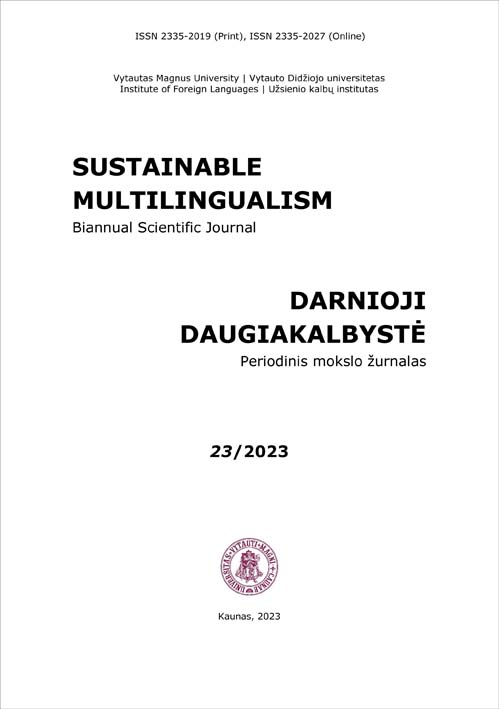The Role of Linguistic and Cultural Mediation in Mearning the Host Country’s Language
The Role of Linguistic and Cultural Mediation in Mearning the Host Country’s Language
Author(s): Daiva Pundziuvienė, Almantė Meškauskienė, Teresė Ringailienė, Jūratė MatulionienėSubject(s): Language studies, Language and Literature Studies, Foreign languages learning
Published by: Vytauto Didžiojo Universitetas
Keywords: Mediation in language teaching/learning; Linguistic integration of migrants; Acculturation; Plurilingual/pluricultural competence;
Summary/Abstract: The need to reconsider the value of mediation in language teaching/learning has been highlighted due to such processes as globalization and migration in the contemporary world. The importance of a language learner's entire plurilingual repertoire has been emphasized in “The Common European Framework of Reference (CEFR) Companion Volume” (2020) and students’ linguistic and cultural backgrounds have been recognized as useful teaching resources to enhance language learning (Piccardo & North, 2017). The application of translanguaging has become an innovative method applied in language teaching and is now seen as a tool for increasing learners’ commitment and self-belief (Duarte, 2020). A survey was conducted to explore the role of mediation in learning a host country's language in the UK and Lithuania. The study aimed to investigate the use of non-linguistic competences to reduce linguistic and cultural barriers, encourage collaboration among language learners, and improve their competence in translanguaging. The survey included 23 English for speakers of other languages (ESOL) students (levels A2 and B1) and 15 Lithuanian as a second language students (levels A1 and A2). A quantitative and qualitative research methodology was used to analyze their language learning experiences during mediated lessons of the target language. The results of the surveys and short semi-formal interviews showed that learners had developed various non-linguistic competences and demonstrated the ability to use other languages for learning a new language. Although most of the research participants agreed that such a way of learning had helped them to successfully learn the target language and preserve their national identity in a foreign country, a careful guidance provided by a language teacher is necessary in order not to be misguided among the variety of similar or different languages.
Journal: Darnioji daugiakalbystė
- Issue Year: 2023
- Issue No: 23
- Page Range: 121-142
- Page Count: 22
- Language: English

